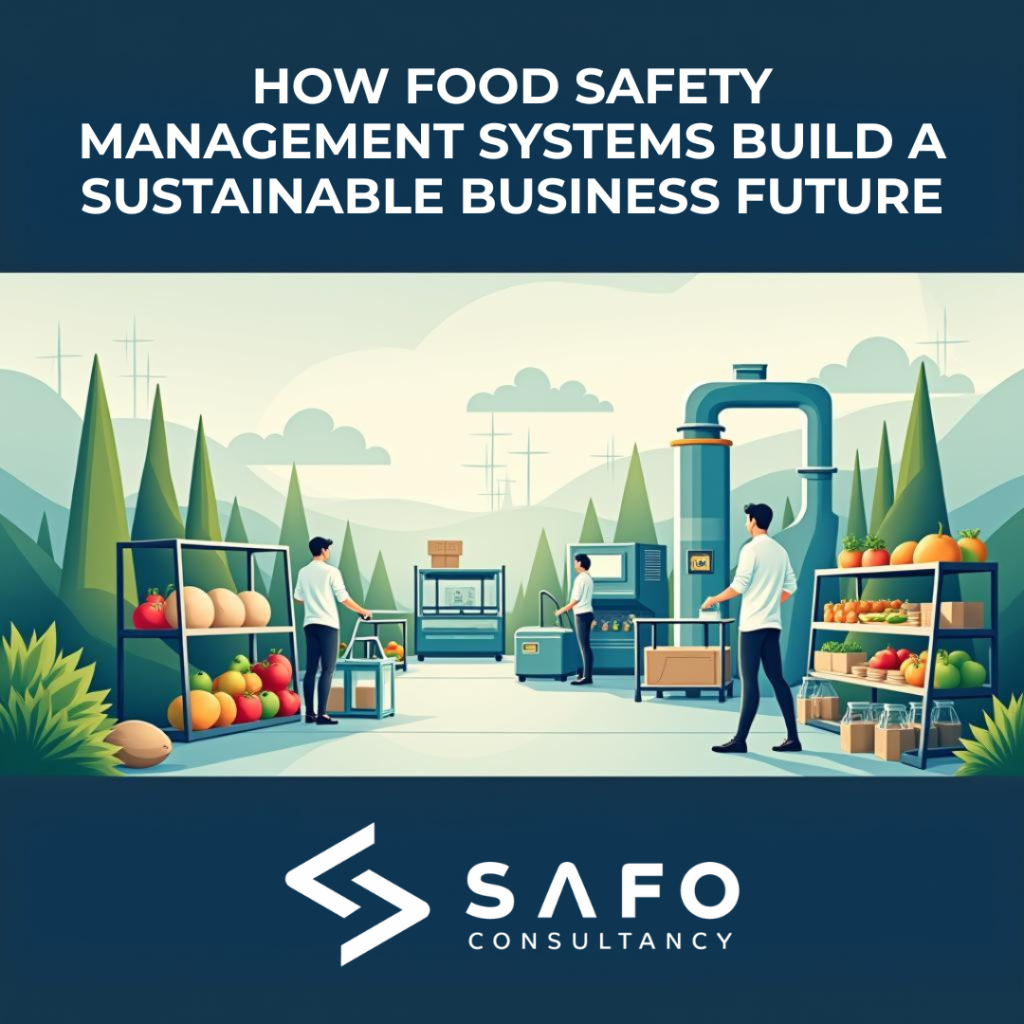
In today’s competitive food industry, sustainability isn’t just about being eco-friendly—it’s about running a business that can thrive for years to come. A Food Safety Management System (FSMS) plays a vital role in this journey by ensuring products are safe, operations are efficient, and resources are managed responsibly. The connection between food safety and sustainability is powerful: both aim to protect people, planet, and profit.
1. Food Safety as the Foundation of Sustainable Growth
A sustainable business must first ensure its products are safe for consumers. Implementing an FSMS such as ISO 22000, FSSC 22000, or BRCGS helps food companies prevent contamination, reduce recalls, and maintain consistent quality. This not only protects public health but also secures long-term brand trust—an essential element of business sustainability.
2. Reducing Food Waste through Better Control
One of the biggest sustainability challenges in the food sector is waste. Effective food safety management includes strict monitoring of storage temperatures, shelf life, and handling practices, minimizing spoilage and product rejection. By reducing waste, companies conserve resources, cut disposal costs, and lower their environmental footprint.
3. Efficient Resource Management and Energy Use
Sustainability also means operating efficiently. FSMS frameworks encourage process optimization, preventive maintenance, and clean production techniques that reduce water and energy consumption. These actions not only lower costs but also align businesses with global sustainability goals like the UN Sustainable Development Goals (SDGs).
4. Enhancing Stakeholder Confidence and Market Access
Customers, investors, and regulators increasingly expect food companies to demonstrate responsibility. Certification to an internationally recognized FSMS standard signals that your business values safety, transparency, and sustainability. This trust enhances your brand reputation, opens export opportunities, and ensures long-term profitability.
5. Building a Culture of Continuous Improvement
A sustainable business is one that learns and evolves. FSMS frameworks emphasize training, employee involvement, and continual improvement. This creates a culture where everyone—from management to floor-level staff—contributes to safety, efficiency, and responsible practices. Over time, this culture becomes the backbone of business resilience and sustainability.
Conclusion
Food safety management and sustainability are two sides of the same coin. While sustainability ensures long-term survival, food safety guarantees daily trust and compliance. Together, they create a system that not only protects consumers but also drives efficiency, innovation, and profitability.
Implementing a strong Food Safety Management System is more than a compliance step—it’s an investment in your business’s sustainable future.
